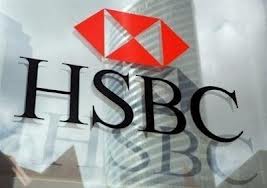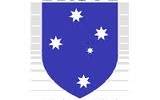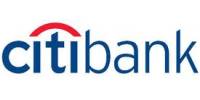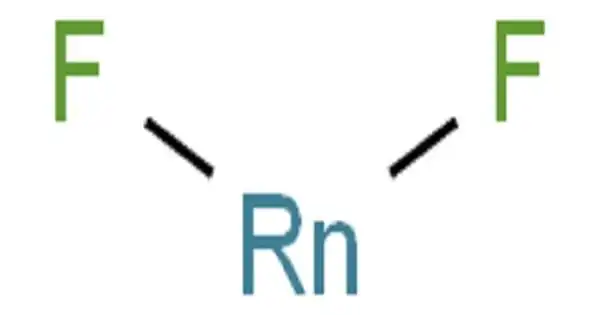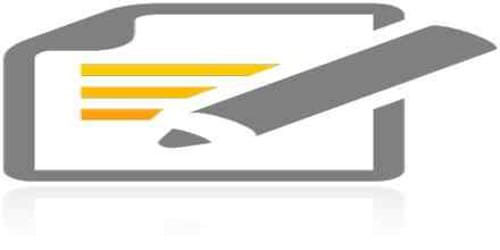Overview of the company:
The HSBC Group, one of the world’s largest banking and financial services organization headquartered in the United Kingdom, had its beginnings in Asia more than 130 years ago. The Group has some 9,500 offices in 79 countries and territories in Europe, The Asia-Pacific region, The Americas, the Middle-East and Africa. In Bangladesh, its head office in Dhaka, a full-service branch in Chittagong and three full-branches in Gulshan, Mothijheel and Dhanmondi Two sub-branches (booth) in Uttara and Sylhet represent HSBC group. HSBC is the first bank to receive the ISO9002 accreditation in Bangladesh.
Main Objective:
The main objective is to assess the level of importance the customers of HSBC put across various service level attributes and also to determine how well HSBC was satisfying the customers on those service grounds.
Specific Objective:
To explain the meaning of customer satisfaction.
To understand the need of customer satisfaction.
To provide information on HSBC Bangladesh, determine most important attributes of service quality, identify the most satisfied demographic segments, determine relation between complaint resolution and satisfaction etc.
Analyze the effectiveness of HSBC’s customer services and satisfaction.
Finding out what were the facilities provided by HSBC to its clients and how they perceived those
To identify the problem for finding out the reason of limit client
HSBC Group Vision
HSBC Group Mission
To be the Bonding Company that guarantees in the market to satisfy appropriately and professionally the bonding needs of our obligors and the assurance of timely fulfillment of our bond to our beneficiaries.
Vision
To be the world’s leading financial company.
The essence of HSBC brand is integrity, trust and excellent customer service. It gives confidence to customers, value to investors & comfort to colleagues.
HSBC Group Values
HSBC Governing Objective:
SUB-SYSTEM
Organizational Hierarchy at HSBC, Bangladesh
HSBC follows a 4-layer management philosophy in Bangladesh. These are Managers, Executives, and Officers & Assistant officers. The CEO is the top most authority of all the levels. Managers are the departmental heads that are responsible for the activities of their departments. They are the heads of the department and formulate strategies for that department. e.g. Human Resources Manger. Executives have the authority next to managers. They are basically responsible for certain activities & organizational functions. e.g. Admin Executive. These two layers represent the management level of HSBC Bangladesh. Officers are the next persons to stand in the hierarchy list. They are the typical mid-level employees of HSBC organizational hierarchy. These officers are responsible for managing the operational activities and operating level employees. The operating level employees of HSBC who are ranked as Assistant Officer fill the last layer of this hierarchy. They perform they day-to-day operational activities of HSBC. An organizational hierarchy chart is shown below:
Managers
Executives
Officers
Assistant Officers
ORGANIZATIONAL STRUCTURE OF HSBC BANGLADESH
Chief Executive Committee:
The organizational structure of HSBC Bangladesh is designed according to the various service and functional departments. The Chief Executive Officer (CEO) heads the chief executive committee, which decides on all the strategic aspect of HSBC. The CEO is the person who supervises the heads of all the departments and also is the ultimate authority of HSBC Bangladesh. He is responsible for the all the activities of HSBC Bangladesh and all its consequences. He administers all the functional departments and communicates with the department heads for smooth functioning of the organization. The HSBC Chief Executive Committee is formed with the heads of all departments along with the CEO. The structure of this top-most authority is shown in the figure above. Besides the CEO the CEC is staffed with 5 more managers: Chief Operating Officer, Manager
Personal Financial Services, Head of Corporate Banking, Manager Human Resource Department and Manager Marketing.
Functional Departments of HSBC:
HSBC activities are performed through functional departmentalization. So, the departments are separated according to the functions they perform (HR, Marketing, Personal Banking, etc.). There are 6 major functional departments at HSBC: Human Resources, Services, Financial Control, Personal Banking, Corporate Banking and Marketing. Within these major departments there are some other subsidiary departments that allow smooth operation of their own major departmental function. A graphical presentation of all the departments (Major & minor) is shown in the following page. A brief functional description of these departments is discussed below:
Functional Departments of HSBC:
Elaboration
IT – Information Technology
PCM – Payment and cash management
HUB – HSBC universal Banking
Human Resource Department:
The Human resource Manager heads this department. The major functions of this department are Recruitment, Training and developments, Personnel Services and Security. The HR department is much concerned with the discipline that is set up by the HSBC group. HSBC group has got strict rules and regulations for each and every aspect of banking, even for non-banking purposes; i.e. The Dress Code. All these major personnel functions are integrated in the best possible way at HSBC, which results in its higher productivity. The Human resource officer monitors the employee staffing and administration activities. The Training officer supervises Training, development & rotation activities. The structure of the HR department is shown below:
Structure of Human Resource Department
Services Department:
This is an integral and vital part of the bank. The services department ensures smooth operation and functioning within and between all the departments of HSBC. It also provides continuous support to the core banking activities of HSBC. The Manager of Services heads this department who formulates and manages various critical issues of the services function of HSBC. He is followed by a group of executives who are the heads of various subsidiary divisions that operate within the services department. The services department is considered as the backbone of all other departments. The various subsidiary division within this department are Administration, IT, Internal Control (IC), Network Services Center (NSC), and HUB. A structure of the services department is presented below followed by a briefing of the subsidiary divisions:
Financial Control Department (FCD):
This is considered as the most powerful department of HSBC. It keeps tracks of each and every transaction made within HSBC Bangladesh. Manager of FCD who ensures that all the transactions are made according to rules and regulation of HSBC GROUP heads it. Violation of such rules can bring serious consequences for the lawbreaker. The functions of FCD are briefly discussed below along with an organ gram of the department:
FC – Foreign Correspondence
PCM – Payment & cash management
OCM – Outward cash management
Personal Financial Services
PFS is the most flourishing department of HSBC Bangladesh. This department basically deals with the management of products and services offered to the in individual consumers. Within a span of only seven years, HSBC, PFS has grown tremendously and is still growing with its innovative products and service offerings. Manager of PFS, Mr. Mamoon Mahmud Shah, Head of this department. He is the person behind the astounding growth of PFS department in HSBC Bangladesh. Chief of PFS manages and supervises the Personal Banking activities of the branch network of HSBC Bangladesh. The 7 branches of HSBC basically deal with the personal banking activities and provide various accounts services to individual customers. The Organ gram of PFS shown below:
Marketing Department:
The sixth major department of HSBC is the marketing department. The marketing department of HSBC play a vital role in fostering the continuos growth HSBC in Bangladesh. A manager is assigned to this department who looks after the overall marketing operation of HSBC in Bangladesh. This department is basically concerned about marketing the company’s products, services and building a strong corporate image. The marketing department of HSBC has four subdivisions: Direct Sales, Promotion , Marketing Administration and public relation. This division are discussed below:
Direct Sales (DS):
Basically, this Direct Sale is a vital part of PFS as well as Marketing .This department is controlled by PFS. An executive is assigned to this part of the marketing department. The Direct Sales division coordinate & manages the sales activities of all the Mobile sales officers (MSO) of HSBC Bangladesh. The MSO’s basically makes sales of the company various Personal Banking products such as, savings accounts, consumer loan, etc outside the banking premises. There are a total of more than 200 mobile sales officers (MSO) employed in the cities of Dhaka and Chittagong and Sylhet. The MSO’s are assigned to specific branches for making sales activities more smoothly. The DS executive sets sales strategies & targets for the Sales officers and manages the whole team of MSO’s in Bangladesh. The direct sales department also decides upon the commission and remuneration of the mobile sales officers as their salary structure is based on sales performances. Thus this part of the marketing division is very important for the overall growth of the Personal Banking Division.
Promotion:
This part of the marketing department deals with all the promotional activities of HSBC Bangladesh. Prime responsibilities of this department are: Maintaining strong public relations with various media intermediaries, Advertising the companies products and services, building a strong corporate image of HSBC in Bangladesh.
Advertising:
The promotion also coordinates all the advertising of HSBC products within Bangladesh. Some of the advertising tools that are frequently used by the company are as follows:
a) Newspapers Advertising: Regular advertisements of various products and services of HSBC are given in some of the countries most renowned daily newspapers.
b) Billboards: Huge colourful billboards with HSBC logo are found in various major areas of Dhaka and Chittagong. These billboards emphasize on the needs of customers and shows HSBC logo as solution to their needs.
c) Road Side Signposts: Medium sized multi colour signposts focusing on various products of HSBC are found on the roadsides of various posh areas such as, Gulshan, Dhanmondi, Baridhara, Motijheel, etc.
d) Mailers: various product updates and new product information are regularly sent to existing customers of HSBC.
e) Brochures: Various colourful brochures featuring specific products of HSBC are being displayed and distributed to existing and potential customers via branch offices and Mobile sales officers.
These are some of the promotional activities managed and coordinated by the promotion department.
Marketing administration:
This department formulates & executes various marketing strategies of HSBC Bangladesh. This department also administers various marketing research activities on the existing and potential customers of HSBC. Some such research activities are: mystery shopping, critical incident surveys, customer suggestion surveys, etc. The results of these surveys are integrated while formulating various marketing strategies. This department also deals with the billing and invoicing of various marketing & advertising costs of HSBC Bangladesh.
In these are the major departments of HSBC Bangladesh. Except the branches all other departments are situated at HSBC Bangladesh head offices located at AnchorTower, Kawran Bazar. Most of HSBC’s operation and activities are operated centrally from the head office. But to deal with customers more completely, the branches are given considerable authority and they operate in a more decentralized manner but subject to verification of the respective departments.
Product and Service:
HSBC Bangladesh carries out all traditional functions, which a commercial Bank performs such as Mobilization of deposit, disbursement of loan, investment of funds, financing export & import business, trade & commerce & so on. Besides it also offers some specialized services to its customers. Products & services offered by HSBC can be categorized according to the customers they serve. Thus two major groups can be identified. They are – individual customers or consumers & corporate customers or organizations. An in-depth analysis of HSBC’s product and services in Bangladesh is presented in this section. First of all, the liability products of the bank are discussed. Then, the various products and services of personal banking division will be presented. The summary of all the products and services of HSBC Bangladesh is displayed in the following page with the help of a diagram.
Liabilities:
The financial products of HSBC can be categorized into two groups – Asset products and liability products. Asset products are the various types of credit and loan schemes offered to consumers whereas the liability products consist of all the savings and deposit schemes offered to customers. In the following section, the liability products of HSBC are described briefly:
Savings Account System:
This is a depository account basically designed for small-scale savers. This is an interest bearing account and the features of this account are as follows:
Opening balance Tk 50,000
Average balance that should be maintained: Tk 50,000
Interest bearing (from 4% – 5.25%). One of the unique features of HSBC savings account is that interest is calculated on daily outstanding balance and is credit to customers account every six months.
No restrictions on number of Transactions
No yearly ledger fee
Free ATM card and phone banking service
Documentation required to open the account: one pp-size photograph, filled account opening form, passport copy & check/cash of Tk 50,000/
Can be opened only by Bangladesh and dual citizens in single or joint names.
Current Account
This is a also a depository account basically designed for various customers. This is a non interest bearing account and the features of this account are as follows:
Opening balance Tk 50,000
Average balance that should be maintained: Tk 50,000
No restrictions on number of Transactions
No yearly ledger fee
Non interest bearing
Free ATM card and phone banking service
Can be opened only by:
Individuals (joint or single)
Proprietorship companies
Partnership companies
Limited Companies
Liason offices
NGO’s
Documentation needed: various kinds of documents are needed for the companies such as memorandum of association, board resolution, etc. however the requirements for individuals are same as the savings account.
Short term deposit (STD)
These accounts are opened mostly by the organizations. Organizations normally maintain current accounts in the banks. They need to transact bulk amount regularly that’s why, current account fits with their requirements. As current accounts do not provide any interests and as the organizations cannot have savings account, they are deprived of earning any interest despite having huge deposit in their accounts. ‘Short-term deposit’ accounts enable them to earn interests from their accounts. These kinds of accounts share some properties of both current and savings accounts. The account provides interests, which are like the savings accounts, and the holder can withdraw any amount any time from his account, which is a property of the current account. Individuals especially, businessmen maintain such accounts.
Fixed Deposit:
It is also known as term deposits. These deposits are made in the bank for a fixed period of time. This period of time should be specified in advance. The bank needs not maintain cash reserves against these deposits & therefore, it offers interest rates that are higher than the savings accounts.
ResidentsForeign Currency Current accounts
BD nationals residing abroad open this account. Foreign nationals residing abroad or in Bangladesh, Foreign firms registered abroad, Bangladeshis working in multinationals at Bangladesh and receiving salary in FC can also open such account. The account is non-interest bearing and there are various kinds of restrictions for withdrawals and deposits. The account can be maintained in Euro (EUR), Pound Sterling (GBP) and US Dollar (USD).
Non-resident foreign currency accounts
These are time deposit interest bearing accounts. All non-resident Bangladeshi nationals can open them, persons having dual citizenship, shipping staffs, etc. they can be maintained in EUR, GBP & USD currencies. These accounts are strictly monitored by the central bank and restrictions exist for these accounts.
Resident foreign currency deposit accounts
Balances in these accounts are freely transferable abroad without any restriction from Bangladesh bank. Resident Bangladeshis returning from abroad can open this account within one month of his/her return.
Convertible Taka account
Diplomatic missions, UN organizations, non-profit international companies, foreign contractors & consultants, expatriate resident employees of UN missions can open these accounts. These accounts are maintained in Tk. and are non-interest bearing.
Exporters Retention quota accounts
Exporters earn foreign currency. But due to legal restriction posed by the Bangladesh bank, they cannot keep foreign currency more that $5,000. As the exporters earn bulk of foreign exchange and are deprived of the benefits of foreign currency accounts, a special kind of account is created to benefit them. In this special type of account they can keep up to a 7% of their total amount of foreign currency exports and earn interests according to dollar interest rates. Some other special benefits are also awarded to such customer such as free endorsements, withdrawals that are higher than the maximum limits, discounted rates for TC’s, etc. They use those accounts in the purpose of remittance and other business purposes.
Other accounts:
There are various other accounts that are created to meet customer demands and requirement. Such accounts are customized and restrictions on these accounts are subject to change.
Services offered to these accounts
Wide ranges of services are offered to the customers who hold these accounts. Some such services are:
Free ATM Card, check book & phone banking service
Cheques/cash deposits
Standing instruction
Quarterly/monthly statement of account
Foreign currency Endorsement against travel quota and sale of Travelers cheques (Thomas Cook).
Issue of Solvency/Bank certificate
Payment orders, demand drafts, Telegraphic transfers.
Inward and outward funds transfer and receiving.
Some unique services are also provided to customers using HSBC accounts. These services are Phone Banking, Self Service Banking & Power vantage Scheme.
Personal Banking Products:
The personal banking division of HSBC has designed various assets products to meet the needs of individual customers. These are various loans and consumer credit schemes that satisfy and fulfill some basic purchase purpose of the individual customers. These products are described in the following sections.
Financial Services
It means any service or product of a financial nature that is subject to , or governed by , a measure adopted or maintained by a party or by public body that exercises regulatory or supervisory authority delegated by law and includes , but is not limited to : deposit – taking; loan and investment services ; insurance ; estate , trust and agency services ; securities ; and all forms of financial or market intermediation including , but not limited to , the distribution of financial products.
Personal Installment Loan (PIL):
This loan is known as the any-purpose consumer loan of HSBC. This loan is currently the best product of HSBC Bangladesh and is given to HSBC customers. The customers can avail this loan for any of his personal needs such as, traveling, purchase of household goods, computer purchase, etc. Invoices or quotations are not required for these loans, as the bank will disburse the credit amount directly to customers account.
No Personal guarantee or cash security is required to support the loan. Even no down payment is required to disburse this loan.
The main feature of the PIL is simplicity. This means by completing very simple and easy documents the customers can apply for the loan.
Low and very competitive interest rates are offered for this loan with very low processing fee and stamp charges. The interest rate is 19% on reducing balance and 15% for salary account customers.
Anyone who is at least 25 years old, employed in a well-established company for 2 years with a minimum monthly income of TK 18,000 can apply for the loan. Self-employed individuals can also apply but valid income proof must be presented to the bank.
The loan amount ranges from Tk50, 000 to Tk 1,000,000 or maximum four times of the applicants monthly income, whichever is lower.
Loan repayments are made in form of equal monthly installments (EMI). The customers have the flexibility of choosing the repayment period (12, 24 or 36 months). The monthly installment is automatically debited from the customers’ personal account held with HSBC.
Provisions for partial repayments and early settlement of the loan are also present but the customer has to pay the respective fees of settlement.
Loans are approved at the sole discretion of HSBC credit authority and rejections are unquestionable.
CAR LOAN:
Car loan is provided to HSBC customers to purchase personal cars. This loan is the second best product of HSBC that finances the cost of the car for its customers.
The scheme covers loans ranging from TK100, 000 to Tk 2,000,000. The loan amount is up to a maximum of 70% of car value. The loan does not cover registration, insurance and other costs.
The customers need to submit quotation mentioning the price of the car to be purchased.
The loan value is paid to the car vendor in the form of pay order.
The interest rate on the loan is 16% with low processing fee and no hidden cost.
HSBC makes arrangements with selected insurance companies for special discounts on their insurance policies.
Anyone who is at least 25 years old, employed in a well-established company for 2 years with a minimum monthly income of TK 20,000 can apply for the loan. Self-employed individuals can also apply but valid income proof must be presented to the bank.
Loan repayments are made in form of equal monthly installments (EMI). The customers have the flexibility of choosing the repayment period (12, 24, 36 & 48 months). The monthly installment is automatically debited from the customers’ personal account held with HSBC.
Personal Secured Loan & Credit
Personal secured Loan/credit is a credit facility against time deposits or government savings certificates and bonds.
A customer can get a loan amount up to 90% of the security value.
A customer can re-invest his money while his/her main investment (certificate or Bonds) remain intact and this enable the customer to have the flexibility to meet short-term commitments as well as long term purchases without unlocking their long term investments.
For Personal secured credit (short term) the interest is calculated on the daily outstanding loan amount and for personal secured loan (long term) the rate is calculates annually.
Facilities are repaid when either time deposits are withdrawn or govt. bonds mature.
ENVIRONMENT:
Public Relations
The promotion department organizes various environmental and social activities in order to build a strong corporate image of HSBC in the minds of customers as well as in the media. Maintaining strong relationship with news media is another major duty of this department.
INPUT
OUTPUT
CONTROL
&
FEEDBACK
Input:
For HSBC banking system the main input is their employee and emploey.
Output:
The output of HSBC bank is the services and security.
Control:
HSBC control their system by their own IT section.
Feedback:
The customer’s satisfaction is the main feedback of HSBC bank.
HSBC Bangladesh Offices & ATM Centers
HSBC Bangladesh currently provides services from three of it’s full service branches one in Dhaka, Chittagong and Sylhet. Besides these offices there are four personal banking Booth offices located at Gulshan, Motijheel and Dhanmondi and another one is in Chaittagong. There are currently 11 ATM’s operating in Dhaka, 2 in Chittagong and 1 in Sylhet. The list of these offices is shown below along with there their addresses:
Branches & Booths:
Dhaka Main Office (Full service branch with one ATM)
AnchorTower, Sonargaon Road – Dhaka
Gulshan Office (Personal Banking Booth with one ATM)
Gulshan Avenue, Dhaka
Motijheel Office (Personal Banking & Remittance office with one ATM)
Rajuk Avenue, Motijheel- Dhaka
Dhanmondi Office (Personal Banking Booth with one ATM)
Road-27, Dhanmondi-Dhaka
Chittagong Office (Full service branch with one ATM)
Osman Court, Agrabad – Chittagong
Uttara Office (Personal Banking Booth with one ATM)
Plot No. 4/A, Road No. 5, Sector –4, UttaraModelTown Dhaka-1230.
Sylhet Office
Coushatta, Sylhet.
Offsite ATMs
Uttara model town, Uttara – Dhaka
Mumtaz plaza, Dhanmondi – Dhaka
Kemal Ataturk Avenue, Banani – Dhaka
4. Concord Twin Towers, Shantinagar – Dhaka
5. GEC Circle – Chaittagong.
6. Original 10, Mirpur – Dhaka
Conclusion:
HSBC is a global banking and financial services organization headquartered in London. The group’s international network comprises more than 9,500 offices in 79 countries and territories, operating the Asia Pacific region, Europe, USA, and Middle East & Africa. HSBC Group is represented in Bangladesh by its subsidiary bank HSBC, Bangladesh.
I got the chance to visit new people and make them customer of HSBC, not only that my responsibility is to provide customer service time to time. I also got the scope to interact with customers and reveal their expectations and perceptions about the bank’s services. During my interaction with customers I felt that somewhere there are gaps between customer expectations and banks services and since the CEO of HSBC Bangladesh has given emphasis on better customer service and more customer satisfaction, thus the Customer service officer asked me to work on this topic.
This research has provided some interesting insight into what kind of service the customers give importance to and what quality service they get from HSBC. It is quite obvious from the research that the customer requirements are not fully met and they are very dissatisfied with some of the aspects of the bank (location, saving rates, credit services, investment services, etc.). Again the research revealed that only one third of customers were more of less satisfied with the services of the bank and more than half of the respondents were on the neutral side of satisfaction line. HSBC should attract this half and bring them to the positive side of the road so that strong relationship with the customers can be maintained.
Finally, I would say that this report at HSBC has increased my practical knowledge of Business Administration. In this report I got the opportunity to apply various tools and concepts I learned in my BBA courses.
Sources of Information:
Primary data
I have collected primary data by variety a ways, first of all by interviewing employees and managers of HSBC and directly communicating with the customers. I have prepared quandaries check to minimize the asking time. I have also conducted a questionnaire survey of the customers minimizing interruptions in their banking activities. Primary data were mostly derived from the discussion with the employees & through surveys on customers of the organization. Primary information is under consideration in the following manner:
Face to face conversation with the employees.
Appointment with the top officials of the Bank.
By interviewing customers at HSBC, Main Office
By Telephonic discussion with the customer.
Sending questionnaire to the customer by E-Mail
Secondary data
I have elaborated different types of secondary data in my research. Sources of secondary information can be defined as follows:
Internal Sources
Prior research report
Internal Audit report.
Group Business Principal manual
Group Instruction Manual & Business Instruction Manual
Bank’s Annual Report.
Any information regarding the Banking sector
External Sources
Different books and periodicals related to the banking sector.
Internet browsing.
Bangladesh Bank Report
Newspapers
Study Area /center:
I am a staff of HSBC Bangladesh I got the opportunity to collect data from different branches. All of the Branch managers helped me a lot by providing information. I have covered the Dhaka main, Motijheel, Dhanmondi, Gulshan, and Uttara Branch in my study.
Data collecting instruments:
In-depth interview: During the exploratory research, I conducted in-depth interviews with managers, employees & customers of HSBC
Questionnaire survey: I also designed a structured questionnaire for the customers of HSBC. This structured questionnaire was the major tool of this research project.
Limitations of the Study:
The report work was basically based on interpreting primary data. Secondary data also needed for analyzing future plans, but for the purpose of the betterment of the present position of customer service. Though I tried my level best to produce a comprehensive and well organized report on the “Customer Service” Procedures of HSBC” some limitations were yet present.
The survey was limited to the customers of Personal banking division and does not cover the organizational or corporate customers of HSBC.
I had some limitation of getting some important actual data and information.
Part on organizational culture was written from individual’s perception and may vary from person to person.
In many cases, up to date information was not published.
The information regarding the competitors is difficult to get
Many procedural matters were conducted directly in the operations by the top management level, which also gave some sort of restrictions.
To protect the organizational loss in regard of maintaining confidentiality, some parts of the report are not in depth.
APPENDIX:
Dipta Chakraborty
PFS Officer
Personal Financial Services
The HongKong and Shanghai Banking Corporation Limite
